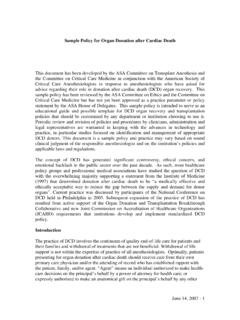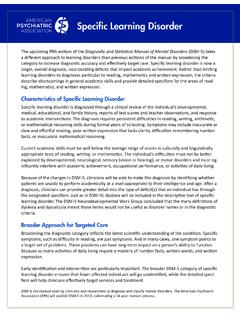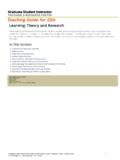Transcription of BURNOUT QUESTIONNAIRE - OneLegacy
1 BURNOUT QUESTIONNAIRE Rate each of the 28 questions according to the following scale: 1 = never/no change 2 = rarely 3 = sometimes 4 = often 5 = always/much change Do you: ____ 1. Worry at night, have trouble falling asleep or staying asleep? ____ 2. Feel less competent/effective than before or work harder yet accomplish less? ____ 3. Consider yourself unappreciated or used on the job? ____ 4. Feel tired/fatigued rather than energetic even when you get enough sleep? ____ 5. Dread going to work or feel trapped in your job situation?
2 ____ 6. Feel angry, irritated, annoyed, or disappointed in people around you? ____ 7. Suffer from physical complaints or frequent illness (headaches, stomach/back/neck aches, colds)? ____ 8. Feel overwhelmed? ____ 9. Think that sex seems like more trouble than it s worth? ____ 10. See close friends and family less often? Are you: ____ 11. More forgetful (about appointments, deadlines, personal possessions) or disassociated than usual? ____ 12. Always watching the clock? ____ 13. Avoiding conversation with co-workers or isolating from people in general?
3 ____ 14. Rigidly applying rules without considering more creative solutions? ____ 15. Increasing your use of alcohol or drugs? ____ 16. Easily or automatically expressing negative attitudes especially to changes? ____ 17. Absent, out sick more often, or while at work? ____ 18. Unable to laugh at a joke about yourself or have difficulty finding joy? ____ 19. Experiencing interpersonal conflict with co-workers/family? ____ 20. Too busy to do ordinary things (making phone calls, reading, calling/contacting family or friends)?
4 Does your job: ____ 21. Seem meaningless or filled with too many repetitive situations? ____ 22. Pay too little? ____ 23. Lack access to a social-professional support group? ____ 24. Depend on capricious funding sources or not have enough funds to accomplish agency goals? ___ 25. Lack clear guidelines or require you to deal with rapid program changes? ____ 26. Entail so many different tasks that you feel fragmented? ____ 27. Demand coping with an angry public? ____ 28. Overload you with work, demand long shifts and frequent overtime or deny you breaks/self-monitored time-outs, lunch time, sick leave, or vacation?
5 Total up the numbers in the response score: _____ WHAT YOUR SCORE MEANS Now, place yourself on the BURNOUT scare. BURNOUT is reversible, no matter how far along it is. Of course the higher number signifies that the sooner you start being more gentle with yourself, the better life will be for you. 28 38 You appear impressively mellow, with almost no job stress and seem practically BURNOUT -proof. 38 50 You express a low amount of job-related stress and are not likely to burn out.
6 Look over those questions on which you scored a 3 or above and think about ways you can reduce the stresses involved. 51 70 You seem to be under a moderate amount of stress on the job and have a fair chance of burning out. For each question on which you scored a 4 or above, consider ways you can reduce the stresses involved. If possible, take action to improve your attitude or the situation surrounding those things that trouble you most. 71 90 You express a high amount of job-related stress and may have begun to burn out.
7 Consider studying stress reduction, assertiveness, and BURNOUT prevention. Mark each question on which you scored a 4 or above and rank them in order of their effect on you beginning with the ones that bother you most. For at least your top three, make a list of ways you can reduce the stresses involved and take action to improve your attitude and/or situation. If your body is reflecting this stress, get a medical checkup. 91 & up You seem to be under a dangerous amount of stress and are probably nearing an advanced stage of BURNOUT .
8 Without some changes in your behaviors, attitude, and job situation your potential for succumbing to stress-related illness is high. Consider taking classes in stress reduction and BURNOUT prevention and/or seeking professional help. Don t let a high score alarm you, but PAY ATTENTION TO IT! Evaluate your professional and personal support system. Know your limits, and honor them. Learn how to ask for help when you need it, and to delegate! Adapted by Michelle Post, MA, LMFT from Public Welfare, Vol.
9 39, No. 1, 1981, American Public Welfare Association. ~~~~~~~~~~~~ Tear off here and give to Michelle Post (your score will be kept confidential)~~~~~~~~~~~~~~~ Your profession role description: _____ Your Score: _____ *optional* for monthly self-care updates, Name & City:_____ email address:_____









